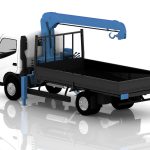For those leasing property and for commercial property owners, the FASB or Financial Accounting Standards Board and the IASB, the International Accounting Standards Board, are implementing important FASB lease accounting changes.
With these proposed changes leases previously not on the books or on the balance sheet will need to be accurately reflected and recorded. In the past, specific types of leases, known as capital leases, were not recorded. These are typically a lease over the lifetime of a piece of equipment or for leases on the property. However, with the new FASB lease accounting changes there will be a requirement to list or recognize both the liabilities as well as the assets of all leases that are more than 12 months in duration.
Changes Type A and Type B Leases
Today, there is a dual type of option for lessee accounting based on if the lease is actually an installment purchases type of arrangement. As it stands now, the lessee has the Type A leases, or the installment purpose, or the Type B lease, which uses a lease liability, and then list the interest as a lease liability which is separately recorded.
With Type B leases today, the lease liability is the same, but the interest is included in single lease costs with the amortization of the asset on a straight-line basis. The new FASB accounting changes remove the Type B lease, as far as lessees are concerned, so on the books all leases will be handled as an installment purchase for accounting purposes.
For the lessors, there will still be a Type A or Type B accounting system in place that is very similar to what is in place today. The Type A leases will be direct-financing, or sales leases and operating leases will be Type B. The big change is in Type A leases for manufacturer/dealer profit will be considered a lease commencement if the control of the asset is transferred to the lessee.
Start Looking Ahead
Since these FASB Lease Accounting Changes will bring most leases onto the books, it is important to review the lease portfolio and determine how these new regulations will impact existing leases. This can provide the option to restructure existing leases to minimize their impact or to even renegotiate current leases not due to renew.
It will be important to have the right software and the right support to make decisions that will assist the company in complying with the FASB lease accounting changes
At DataNet, we have the solutions you need to make the right decisions regarding the upcoming FASB lease accounting changes.







